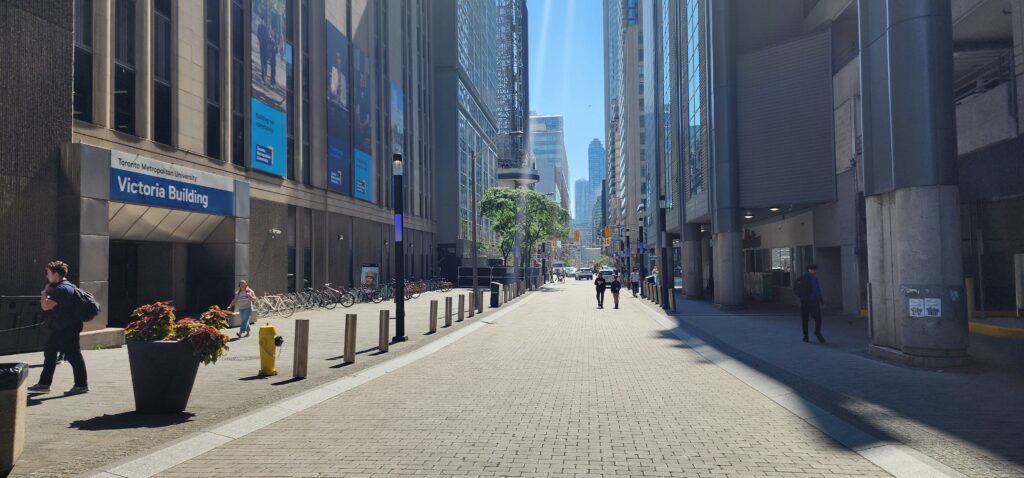
Listen to the whole story here:
For some TMU students commuting to campus this semester, things feel different. They say the area near the Victoria Building is emptier and quieter.
The supervised consumption site on Victoria St., known as The Works, was shut down in April after the Ontario government banned supervised consumption services within 200 metres of schools and daycares.
However, incident reports have not dropped significantly on campus since the closure, with incidents still regularly being reported. Dr. Anne-Marie Singh, a criminology professor at Toronto Metropolitan University, assigned her students to review TMU’s security logs for one of her classes. “We looked at all the security records … which are publicly available. Mapped them all out. There was no security record that mentioned specifically the safe injection site, or the address of that building, or anybody that was using the safe injection site,” says Singh.
Though the decision to close the safe injection sites was controversial and criticized by organizations like the Centre for Addictions and Mental Health (CAMH), students are enjoying a calmer walk to class when crossing Victoria Street, which serves as a shortcut.
“Going to the Vic building is pretty safe now. [My friends and I] feel better, especially with late-night classes,” says Tejjasvini Bhardwaj, a third-year creative industries student.
Despite research showing that the presence of supervised consumption sites does not correlate with higher violent crime rates, there is still this discrepancy between students’ perception and reality.
“[Safety] is the same as usual. They closed the [site] on Victoria Street, so that’s a little bit better, if anything,” says Nicolas Lupo, a TMU community member.
Singh cautions that feelings of “unsafety” in students are sometimes due to the discomfort people experience when faced with circumstances they are not familiar with. “Seeing people or things that are outside of your normal way of seeing the world might make some people feel unsafe,” she says.
Safety Measures: Known, But Rarely Used
In spite of the closure of The Works, the safety challenges of a downtown campus remain the same. There are a number of safety resources available to students through the TMU Safe App, which features services like WalkSafe and workshops, the most well-known of these being the self-defence series, which are set to begin on Sept. 15 for both men and women.
Kevin Sampath, fourth-year accounting student at TMU, says he had never had any need to use the safety resources the school offers students. This sentiment is echoed by other students who spoke with OTR. While most are more or less aware of these resources, they almost never use them.
They are, however, comfortable with the security measures the school has in place. Gulsuma Popal, first-year student in the early childhood studies program, hadn’t heard of any safety issues with the school before attending. “I feel pretty safe. Every building has its own security measures, and [to enter buildings] you have to use your access card,” Popal says.
The presence of all the security guards across campus also makes many students feel better.
OTR reached out to TMU Community Safety for comment, but did not receive a response by publication time.
This article was created with the use of OtterAI for transcription.

